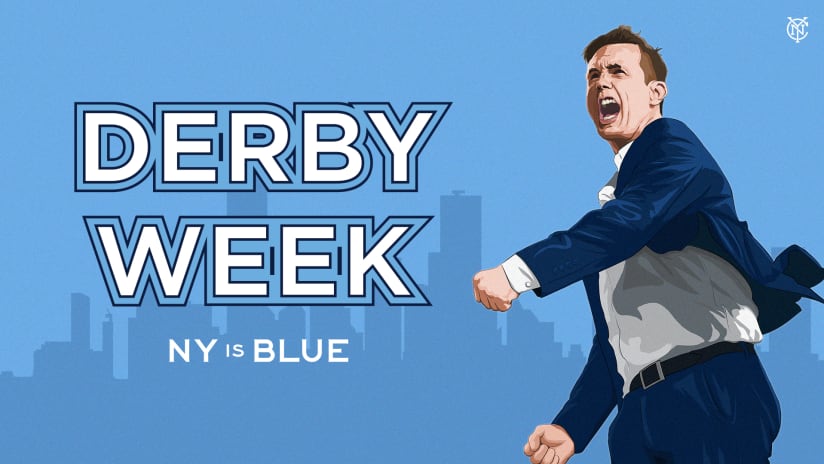Ronny Deila was nervous.
A childhood fan of Odd Grenland, Deila was crossing the white line onto the pitch and readying himself for a game against their fierce rivals Pors Grenland. The two sides, separated by roughly 10km and decades of history, were preparing to ink another chapter in their battle for local pride and regional superiority.
“Every time we played against them, it was a full stadium, like six or seven thousand people,” Deila explained. “That was the first time I felt a local derby. I was very heated. I remember how nervous I was going into those games, but the tension you felt was really good.”
Speak to any athlete, past or present, about what it’s like to play in a rivalry game, and they’ll tell you it’s almost impossible to articulate. As fans, we may sit mere feet away from the action, but our experience differs greatly.
Rivalries have been a central theme of Deila’s time in soccer. At Strømsgodset, where he served as both player and coach, it was Mjøndalen IF that took the mantle of local rival.
“They just call them 30-50,” Deila explained as a smile developed. “That’s the zip code [of Mjøndalen], and so you’re not allowed to say their name. Strømsgodset fans usually just drive through there. They say the only time they stop there is if they’re going to piss. If someone wants to go and see a good local derby in Norway that’s one of them.”
While nearby neighbors can be the foundation for division, a shared city produces an altogether more unique feud. At Scottish side Celtic, where Deila was head coach for two seasons, he saw a new type of rivalry and one that removed him from his comfort zone.
“Everybody knows Celtic and Rangers,” he said. “I think I was a little bit naïve. You have to experience it to understand. I’ve been to Liverpool matches as a fan, Tottenham, Arsenal, but there’s nothing that compares to this. It’s about religion. It’s so much more than only football. I don’t know if there’s three or four more places in the world where it’s similar. I’m grateful to have experienced it and understand what it’s about because everything after that will be easier to handle.”
It was under that pressure - and the demand to deliver results - that Deila feels he reached new frontiers as a coach.
“You can go on as many courses as you want, and you can read as much as you want, but you have to feel it on your body and how you react to it,” he said. “For me, going from a small club to Celtic was like jumping from first grade to tenth grade without doing something in between. It was a tough education. I think the most important aspect is the learning I took from that; how you handle this kind of situation with stress and load physically and mentally over a long time.
“I think when you’re young, you think that you know everything. I had a lot of confidence coming from winning the league and cup in Norway to then going to Glasgow, and I was like, this is going be nice, it’s going to be good. I know what I’m doing. I think I learned that the more you know, the more you know that you don’t know. You start to get a bit more humble and you learn that maybe you should keep your mouth shut and just try to understand the circumstances.”
Deila’s first Old Firm derby took place on at Hampden Park, one of the most iconic stadiums in Scottish soccer, to a chorus of 50,000 supporters. Celtic would emerge 2-0 winners on their way to lifting the Scottish League Cup trophy, and while the final whistle brought with it a cascade of emotion, the accomplishment also delivered a slow drip of joy in the days after.
“I think for me, to win the derby, you sit in your car driving home, and you just put on music and enjoy that feeling inside. It’s just priceless. I don’t know anything that is better,” Deila explained.
“It’s like going to prepare for an exam, and you get a good grade, then you have a summer vacation afterward. It’s a little bit of the same feeling when you drive home that day. I’ve succeeded, and everybody goes home happier from the stadium. That’s one of the biggest reasons why I love to be a coach.”
Deila’s first Hudson River Derby at Yankee Stadium had the potential to deliver that same rush, but there was one vital ingredient missing from the recipe – a full complement of fans.
“I think it’s very important to have a good relationship with supporters,” Deila said. “You know, we are a family. The support we get is so important for our performances, and it’s important to give the same back all the way. I think that’s how we build the relationship and trust together.”
When Deila steps onto the sideline on Saturday evening, he will take a moment to savor the city’s love for soccer that has manifested itself inside Yankee Stadium. The nervousness that defined those early days in Norway has long since washed away, and now it’s about “aggressive legs, calm heads,” as he puts it, and enjoying the night with his adopted family.
“We’re one,” Deila said of the team and the fans. “What they’re giving to us, we’re going to give back to them. I think they’ve done fantastically this season, during the good times and bad times. We’re sticking together and that’s’ what we need to do now. We need to help each other and support each other.”







